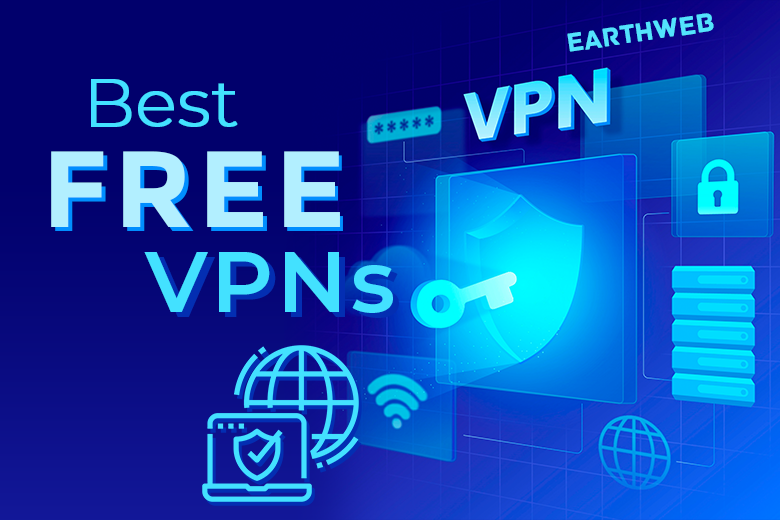Ever since COVID-19, we have seen a massive rise in the popularity of VPNs, mainly because it was the only way for people to connect to their work networks. Other than that, in today’s digital age, where privacy breaches and cyber-attacks are on the rise, ensuring online security has also become extremely important.
Whether exploring the internet for fun or doing business, keeping your important information safe from prying eyes is critical. And the best and easiest way to achieve that is by using a VPN. In this blog, we will explore the benefits of using a VPN and how you can browse anonymously and securely with a free VPN.
What is a VPN?
IN LAYPERSON’S TERMS, a VPN or a Virtual Private Network is just a tunnel that allows the safe and secure transfer of your data on the internet. It is a technology that establishes a secure and encrypted pathway between your device and the internet. It is an intermediary between you and the online resources or services you visit, safeguarding your data from hackers, advertising, and government surveillance.
When you connect to VPN, you are connecting to a VPN server located at a different location than yours. The primary purpose of this server is to mask your IP address, making it appear as if you are browsing from somewhere else. By changing your geographical location and masking your IP address, you get to safeguard your identity and bypass geo-blocking and access content that may be blocked in your region.
Why Use a VPN?
1. Access Geo-Blocked or Restricted Content:
As we just mentioned, with the help of a Virtual Private Network (VPN), you can easily access restricted content, mainly because the VPN makes your connection look like the one allowed by the service you are trying to access.
Users face these kinds of issues with streaming services such as Netflix, Amazon, and Hulu, where they are either unable to access the service from their location entirely or access some content. This is especially beneficial if you’re travelling or living abroad and looking for information from your country.
2. Better Security:
The most common and apparent reason most people use virtual private networks is for enhanced security while surfing the internet. A VPN prevents attackers from intercepting your data by encrypting your internet traffic. This is especially critical when using public Wi-Fi networks, which are renowned for being unsecured, such as those in coffee shops or airports.
A VPN acts as a filter, converting your data into “gibberish.” It would be useless even if someone were to get their hands on your data.
3. Privacy Protection:
Ever wondered why the things you search on the internet start popping up on your social media accounts? That is because internet service providers (ISPs) frequently gather and sell user data to marketers. Your surfing activity is hidden from your ISP when you use a VPN because the encrypted connection prohibits them from monitoring your online activities. This protects your privacy and keeps targeted adverts from following you online.
4. Torrenting Safely:
While torrenting itself is legal, downloading copyrighted material is not. Many ISPs monitor torrenting activity and may limit your connection or report you to copyright enforcement agencies. Using a VPN, you may anonymize your torrenting activities and protect yourself from legal implications.
5. Avoid Government Surveillance:
Many people don’t believe it, but it is an issue. In a lot of countries, governments closely monitor and censor internet usage. A VPN can help you circumvent these restrictions and express yourself freely online without fear of penalties.
How to Get Started with a Free VPN
Since the demand for VPNs has become so high, you will find new VPN companies almost every week. Many of these VPN services are paid, and some of them are also free. It is often recommended to use paid VPNs as they have better protocols. Still, with some research, you can get your hands on a reliable VPN that can provide you with essential security and privacy features for free. Here’s how you can get started with a free VPN:
1. Do your research and find a reliable service:
Because not all free VPNs are equal, researching and choosing a trusted vendor is critical. Look for VPNs with positive user reviews, a strict privacy policy, and a no-logs policy, meaning they don’t gather or retain your internet usage information.
2. Download and install the VPN software:
After choosing the right VPN, the next step is to download the VPN software that is compatible with your device. In some cases, you do not require to download the software. For example, if you use a VPN for internet surfing, you can install the VPN extension on your browser and use it for free. However, if that is not the case, most VPN services offer Windows, Mac, iOS, and Android apps, making it easy to set up and get started.
3. Signup for the service:
Some free VPNs need you to sign up for an account before you can use their service. Enter the required information and follow the on-screen instructions to set up your account.
4. Connect to a server:
After installing the VPN and logging in, you should be able to select a server location. Determine a server in your preferred country, or let the VPN find the most suitable one.
5. You’re Good to Browse Anonymously and Securely:
Your internet traffic will be encrypted with a secret key and routed through the VPN once you connect. You can now browse the web, access restricted information, and benefit from a safe and private online experience.
Some of The Best Free VPNs:
For people who don’t know which is the right free VPN, here are some suggestions that might help
Express VPN – Express VPN is among the oldest and most popular VPN companies. The reason why it is so popular is because it has over 3000 servers located in more than 90 countries. Express VPN is considered a premium VPN, but the best part is that you can use it for free for the first 30 days.
ZoogVPN – ZoogVPN is one of the few free VPNs that allow P2P traffic and comes with features such as a kill switch and split tunnelling. The monthly data limit for this VPN is also a massive 50 GB.
Proton VPN – The next VPN is genuinely a free VPN as you do not have to pay a penny as long as you use it, and the best thing about this VPN is that it does not have a monthly data cap, as the free data per month is unlimited. It uses some of the latest encryption protocols, such as IKEv2, Stealth, Wire Guard, and OpenVPN.
Conclusion:
Safeguarding your online privacy and security is of the utmost importance in an increasingly linked world. Using a VPN to access the internet anonymously and securely is perfect. Whether you’re worried about hackers or surveillance by the government or want to access geo-restricted content, a VPN gives you the tools you need to safeguard your online presence.
With free VPN services, there’s no excuse not to use this technology and protect your digital life. So please don’t put it off any longer; download your free VPN now and enjoy a more secure and private online experience.






